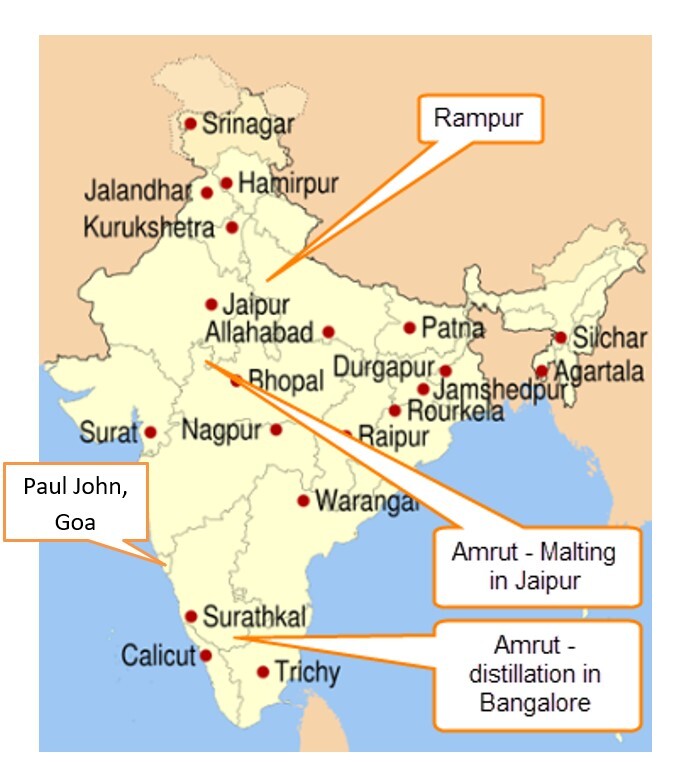Indian Whisky
In the colder, challenging days in the Winter of a bloody awful year, everyone was very much looking forward to meeting up again on Friday, 
Ian A and Om had done some excellent research and unearthed three gems from Jaipur, Goa and Bangalore..
With over 20 distilleries, India is ostensibly a huge whisky-drinking nation – the biggest of them all if you look at the bare consumption figures – but nearly all the domestic ‘whisky’ produced here is dominated by molasses-derived spirit (and therefore, according to EU legislation, not whisky at all).
Of their ‘Whisky’ only 10-12% is malt whisky – the rest is distilled from fermented molasses. Outside India, such a drink would more likely be labelled a rum. There is no compulsory definition of whisky in India - the Indian voluntary standard does not require whisky to be distilled from cereals or even to be matured.
Our first whisky, named after its home city in India’s Uttar Pradesh was Rampur Double Cask Single Malt Whisky, distilled in traditional copper pot stills, matured in first fill bourbon casks and bottled – all at the foothills of the Himalayas. It has a full-bodied aroma of tropical fruits, smooth sweet malty tones and oaky notes from double oak-wood barrels.
Our second whilsy was Amrut Fusion, so named as it uses a fusion of two barleys: Indian and Scottish - with the latter being peated for good measure. Launched in 2009 and with a taste of warming, full blown peat, oaky vanilla, and chocolate fudge with vague sherry trifle notes, a year later it shocked the whisky world by being voted the 3rd best Whisky in the world by Whisky-guru Jim Murray. He did so after tasting over 4000 whiskies from the world over.
Our third and final whisky was Paul John Pedro Ximenez Select Cask from Goa, using Barley from Rajasthan and Haryana to the foothills of Himalayas with a taste of sweet barley with creamy butterscotch, dry fruits and Christmas cake, it owes its characteristics to an intensely sweet and dark Spanish dessert sherry, having been gloriously finished in handpicked Pedro Ximenez casks.
